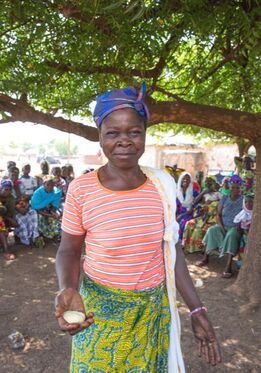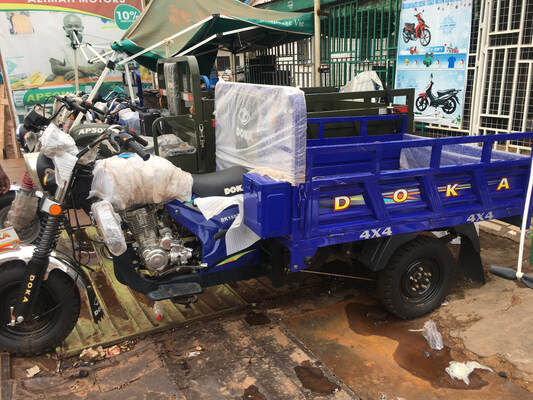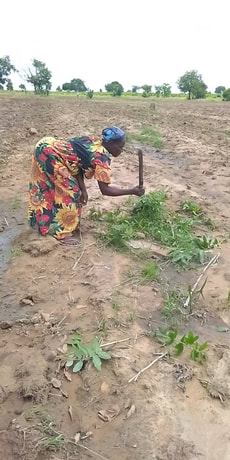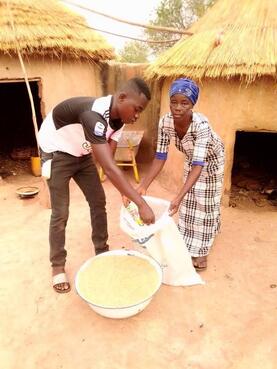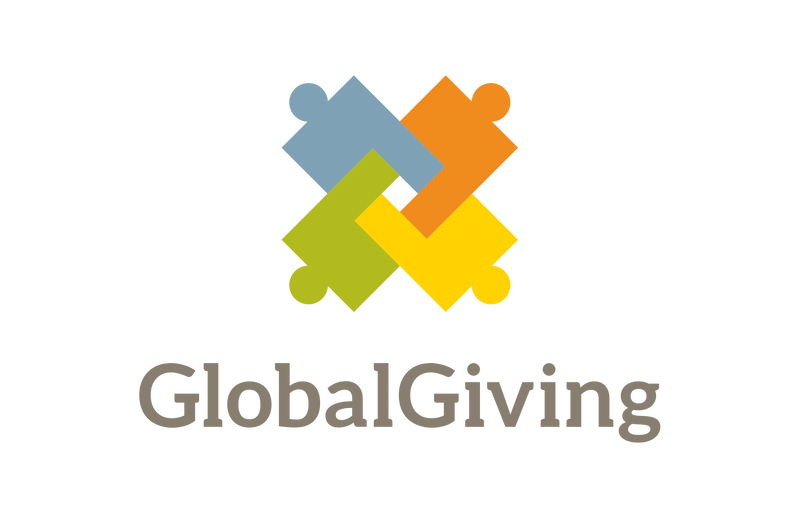Women's Agriculture Projects
Most community members are subsistence farmers who raise corn, rice, yam, millet, and peanuts for their families. Women are responsible for much of the farming and often work very long hours under difficult conditions. Changing rainfall patterns, poor soil health, and a lack of irrigation all contribute to rising food insecurity. Most farm work is done by hand and access to farm equipment, such as tractors, is rare.
To help address these challenges, our partners helped to organize and work closely with a women's group. This group includes women from all six of our partner villages who meet to discuss and select their priorities. Engage Globally supports their efforts with funding and capacity building. We hope to expand this program significantly in the near future.
To help address these challenges, our partners helped to organize and work closely with a women's group. This group includes women from all six of our partner villages who meet to discuss and select their priorities. Engage Globally supports their efforts with funding and capacity building. We hope to expand this program significantly in the near future.
Reducing food loss with King Motos
One challenge for women farmers in this region is transporting supplies and water to the farms and produce from the farms back to their homes. Farms are located approximately 3 kilometers from the village and women must carry most of the food themselves. As a result, a great deal of food is lost to rotting and infestation before it can be harvested and brought to the home storage areas.
To address this challenge, the women's group requested that we purchase King Motos so that they would have a motorized method for transporting goods more quickly and safely. These vehicles can drive through the sandy soil and can be used for repeated trips to the farms. We have purchased two Motos which are being tested in two villages. If they successfully increase yields and are maintained through the season, then we hope to purchase more in 2022.
To address this challenge, the women's group requested that we purchase King Motos so that they would have a motorized method for transporting goods more quickly and safely. These vehicles can drive through the sandy soil and can be used for repeated trips to the farms. We have purchased two Motos which are being tested in two villages. If they successfully increase yields and are maintained through the season, then we hope to purchase more in 2022.
Pilot agriculture project
In 2021, the women's group selected five women to pilot an agricultural enhancement project. The women were provided with a rented tractor to plough their land, seeds, and other supplies. They were also given some introductory training on farming garden vegetables. With these additional inputs and support, the women are expanding the areas that they are farming and diversifying their crops. If the project successfully increases yield and nutritional diversity then we will expand the program to include more women next year. We also plan to increase the training available for women farmers and to provide grants for women who are interested in processing peanuts and shea nuts into butters that can be sold in local markets.
Emergency food distribution
During the last few years, agricultural production has not always been sufficient to meet community nutritional needs. Issues of changing rainfall, higher temperatures, and disruptions due to Covid have all negatively impacted subsistence farming. To help reduce malnutrition, which most frequently impacts young children, we have supported distribution of emergency food to mothers of children under the age of five during the dry season. Mothers are provided with corn, rice, and peanut oil for their families.

